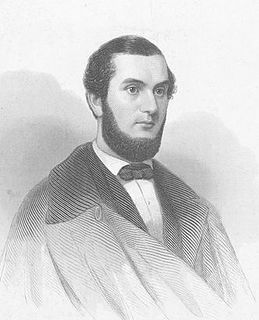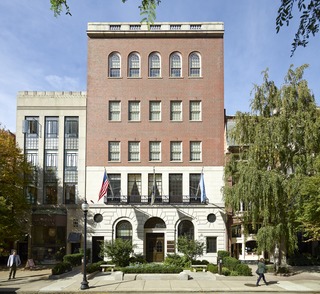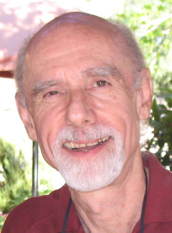This article may meet Wikipedia's criteria for speedy deletion as a copyright infringement( Copyvios report ) of https://vitabrevis.americanancestors.org/author/randerson/ ( Duplication Detector report · Copyvios report ).This criterion applies only in unequivocal cases, where there is no free-content material on the page worth saving and no later edits requiring attribution – for more complicated situations, see Wikipedia:Copyright violations . See CSD G12. If this article does not meet the criteria for speedy deletion, or you intend to fix it, please remove this notice, but do not remove this notice from pages that you have created yourself. If you created this page and you disagree with the given reason for deletion, you can click the button below and leave a message explaining why you believe it should not be deleted. You can also visit the talk page to check if you have received a response to your message. Note that once tagged with this notice, this article may be deleted at any time if it unquestionably meets the speedy deletion criteria, or if an explanation posted to the talk page is found to be insufficient.
Note to administrators: this article has content on its talk page which should be checked before deletion. Note to administrators: If declining the request due to not meeting the criteria please consider whether there are still copyright problems with the page and if so, see these instructions for cleanup, or list it at Wikipedia:Copyright problems . Please be sure that the source of the alleged copyright violation is not itself a Wikipedia mirror. Also, ensure the submitter of this page has been notified about our copyright policy.Administrators: check links, history (last), and logs before deletion. Consider checking Google. This page was last edited by DiamondRemley39 (contribs | logs) at 21:15, 21 November 2019 (UTC) (2 seconds ago) |
This article has multiple issues. Please help improve it or discuss these issues on the talk page . (Learn how and when to remove these template messages) (Learn how and when to remove this template message)
|
Robert Charles Anderson (born 1944) is an American genealogist and director of the Great Migration Study Project. Anderson was educated as a biochemist and served in the United States Army in electronics intelligence. In 1972, he discovered his early New England ancestry and thereafter devoted his time and energies to genealogical research. He published his first genealogical article in 1976, and about the same time began to plan for what eventually became the Great Migration Study Project. In 1983, he received a master's degree in colonial American History from the University of Massachusetts Amherst.

Genealogy is the study of families, family history, and the tracing of their lineages. Genealogists use oral interviews, historical records, genetic analysis, and other records to obtain information about a family and to demonstrate kinship and pedigrees of its members. The results are often displayed in charts or written as narratives. Although generally used interchangeably, the traditional definition of "genealogy" begins with a person who is usually deceased and traces his or her descendants forward in time, whereas, "family history" begins with a person who is usually living and traces his or her ancestors. Both the National Genealogical Society in the United States and the Society of Genealogists in the United Kingdom state that the word "genealogy" often refers to the scholarly discipline of researching lineages and connecting generations, whereas "family history" often refers to biographical studies of ones family, including family narratives and traditions.

The United States Army (USA) is the land warfare service branch of the United States Armed Forces. It is one of the seven uniformed services of the United States, and is designated as the Army of the United States in the United States Constitution. As the oldest and most senior branch of the U.S. military in order of precedence, the modern U.S. Army has its roots in the Continental Army, which was formed to fight the American Revolutionary War (1775–1783)—before the United States of America was established as a country. After the Revolutionary War, the Congress of the Confederation created the United States Army on 3 June 1784 to replace the disbanded Continental Army. The United States Army considers itself descended from the Continental Army, and dates its institutional inception from the origin of that armed force in 1775.

New England is a region composed of six states in the northeastern United States: Maine, Vermont, New Hampshire, Massachusetts, Rhode Island, and Connecticut. It is bordered by the state of New York to the west and by the Canadian provinces of New Brunswick to the northeast and Quebec to the north. The Atlantic Ocean is to the east and southeast, and Long Island Sound is to the southwest. Boston is New England's largest city, as well as the capital of Massachusetts. Greater Boston is the largest metropolitan area, with nearly a third of New England's population; this area includes Worcester, Massachusetts, Manchester, New Hampshire, and Providence, Rhode Island.
Anderson was elected a Fellow of the American Society of Genealogists (ASG) in 1978 and has served as Secretary and President of that organization. He also published in the ASG magazine The Genealogist. He became a Contributing Editor of The American Genealogist in 1979, Associate Editor in 1985 and Co-editor in 1993. He has been an editorial consultant to The New England Historical and Genealogical Register since 1989.
The American Society of Genealogists is the scholarly honorary society of the genealogical field. Founded by John Insley Coddington, Arthur Adams, and Meredith B. Colket, Jr., in December 1940, its membership is limited to 50 living fellows. ASG publishes The Genealogist, a scholarly journal of genealogical research semi-annually since 1980.
The Genealogist is a bi-annual genealogical magazine founded in 1980 by the American Society of Genealogists (ASG) and by Dr. Neil D. Thompson, FASG. Articles are published in full detail, including references. The magazine allows shorter articles, but focuses on articles that are often too large or complex for other genealogical publishing forums. Each issue has a minimum of 128 pages.

The American Genealogist is a quarterly peer-reviewed academic journal which focuses on genealogy and family history. It was established by Donald Lines Jacobus in 1922 as the New Haven Genealogical Magazine. In July 1932 it was renamed The American Genealogist and New Haven Genealogical Magazine and the last part of the title was dropped in 1937, giving the journal its current title. All editors have been fellows of the American Society of Genealogists.





